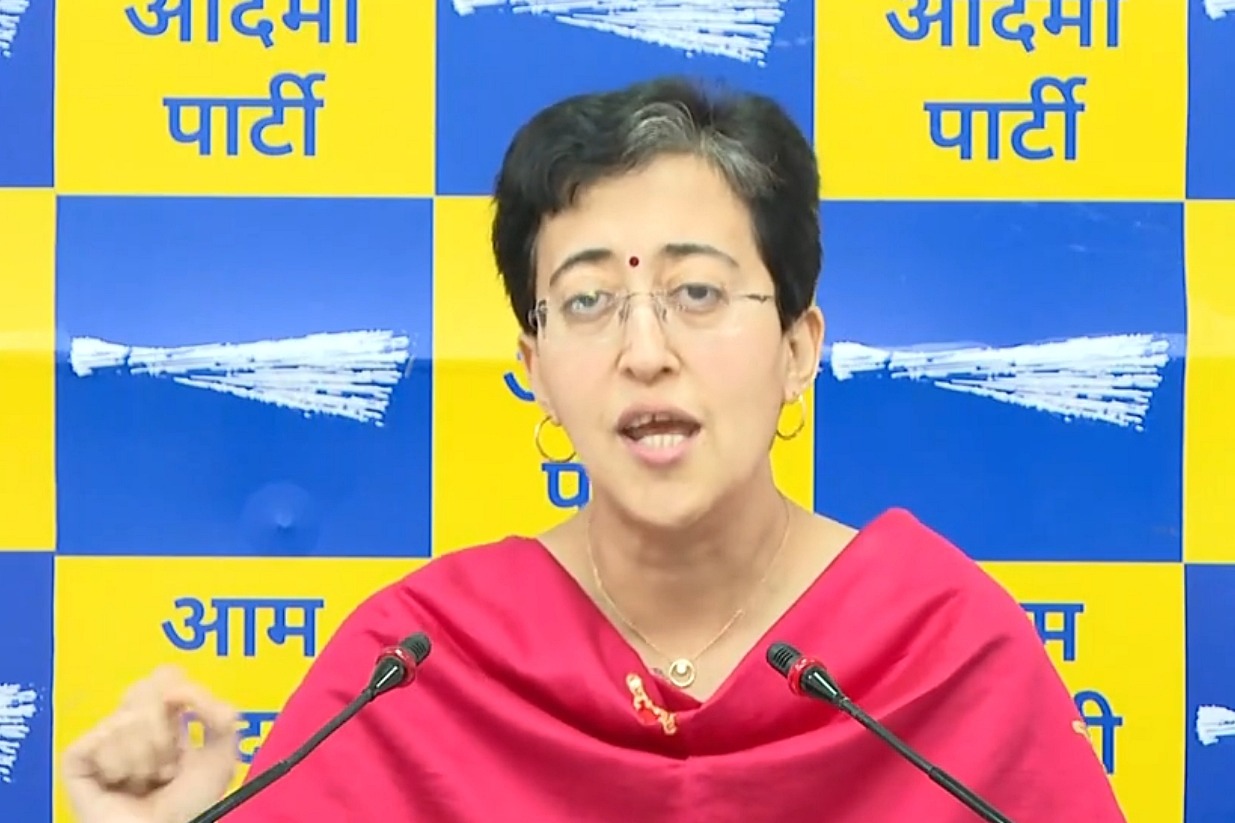A Delhi court has issued a summons to Atishi, on Tuesday, May 28, a prominent Aam Aadmi Party (AAP) leader and Delhi Cabinet Minister, in relation to a defamation case filed by Praveen Shankar Kapoor, the Delhi BJP media head. The court found no prima facie offence against Delhi Chief Minister Arvind Kejriwal, who was also named in the case. This development stems from allegations made by Atishi and Kejriwal accusing the BJP of attempting to bribe AAP MLAs to defect to the saffron party.
Background of the Defamation Case
The defamation case originated from statements made by Atishi and Kejriwal, accusing the BJP of offering substantial bribes to AAP MLAs to entice them into switching parties. These allegations were made during a press conference and through social media posts. Specifically, Kejriwal claimed on Twitter that BJP had contacted seven AAP MLAs, offering ₹25 crores each to destabilize the Delhi government. Atishi echoed similar sentiments during a press conference, asserting that she too was approached with a bribe to join the BJP.

In response, Kapoor filed a defamation suit against both leaders, claiming that these allegations not only tarnished his personal reputation but also the image of the BJP. He argued that these claims were baseless and intended to distract from ongoing investigations involving AAP leaders, such as the Delhi excise policy case.
Court Proceedings and Reactions
The court, presided over by Additional Chief Metropolitan Magistrate (ACMM) Tanya Bamniyal, reviewed the case and concluded that there were sufficient grounds to summon Atishi under Section 500 of the Indian Penal Code (IPC), which pertains to criminal defamation. The court noted that while the allegations against Kejriwal did not warrant a summons, Atishi’s statements required legal scrutiny. Consequently, Atishi has been ordered to appear in court on June 29.

The BJP, particularly Delhi BJP chief Virendra Sachdeva, welcomed the court’s decision, asserting that it would expose the alleged falsehoods propagated by AAP leaders. Sachdeva criticized Kejriwal for repeatedly using deflection tactics whenever faced with corruption allegations, accusing him of trying to shift focus by claiming that his government was under threat from the BJP’s poaching attempts.
Atishi, on the other hand, challenged the BJP to justify how they managed to form governments in states where they lacked a majority, such as Karnataka, Madhya Pradesh, and Arunachal Pradesh. She insinuated that BJP’s alleged poaching tactics were part of a broader strategy to undermine opposition parties, questioning why corruption investigations against politicians who joined BJP were often dropped.
Broader Implications and Political Dynamics
This defamation case highlights the intensifying political rivalry between AAP and BJP in Delhi. It underscores the broader narrative of alleged political maneuvering and corruption that frequently surfaces in Indian politics. The AAP’s allegations reflect a common theme in Indian political discourse, where parties accuse each other of unethical practices to gain or maintain power.

For AAP, these allegations serve as a tool to rally their base and portray themselves as victims of a larger conspiracy orchestrated by the BJP. By alleging that the BJP is trying to destabilize their government through monetary inducements, AAP aims to bolster its image as a party fighting against corruption and political malfeasance.
Conversely, for the BJP, dismissing these allegations as baseless is crucial to maintaining their integrity and countering the narrative of political corruption. By pursuing legal action against Atishi and Kejriwal, the BJP seeks to challenge AAP’s claims and hold them accountable for what they deem as unfounded accusations.
Atishi Legal and Political Repercussions
The legal proceedings against Atishi could have significant implications for her political career and for AAP’s standing in Delhi. A court case, especially one involving defamation, can be a prolonged and distracting process, potentially diverting attention from governance and party activities. For Atishi, the summons is a direct challenge that may require substantial legal defense and public relations efforts.
Furthermore, this case sets a precedent for how political defamation cases might be handled in the future. It underscores the judiciary’s role in mediating political disputes and maintaining a balance between freedom of speech and the protection of individual reputations.
ALSO READ: Meet the real-life Tawaifs
In the broader context of Indian politics, such cases reflect the contentious and often personal nature of political battles. Defamation suits are frequently used as a tool to counter political attacks and to seek redress for reputational damage. The outcome of this case could influence how political discourse is shaped in the run-up to future elections, not just in Delhi but across India.
The summons issued to Atishi in the defamation case filed by Praveen Shankar Kapoor highlights the ongoing friction between AAP and BJP in Delhi. While the court found no grounds to summon Kejriwal, Atishi’s case will proceed, bringing to the forefront issues of political defamation, party loyalty, and corruption allegations. As the legal battle unfolds, it will undoubtedly add another layer of complexity to the political dynamics in Delhi, with potential repercussions for both parties involved.












